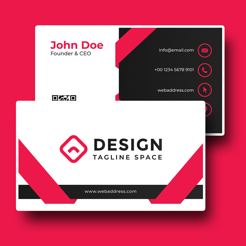Some of the best iOS apps are paid ones, and they rightly should be given the value they offer. But did you know that many developers temporarily make their apps free every day to boost visibility and attract new users? This offers the perfect opportunity to explore new tools and games without spending a dime.

Whether you’re a budget-conscious iPhone or iPad user searching for top-quality apps without the price tag or a tech enthusiast who loves trying different things, we’ve got a comprehensive list of paid apps gone free for you. We update it every day to ensure you never miss a deal. So, make it a habit to check this page daily to get your fix of premium apps for absolutely free.
With all that said, let’s dive into the latest roundup of paid iOS apps gone free today that you won’t want to miss.
iPhone apps have gone free today!
iPhone games have gone free today!
Why do apps go free temporarily?
Paid apps sometimes go free for a limited time for various strategic reasons, as explained below:
- Increasing Visibility: Developers use free promotions to boost their app’s visibility and downloads. When an app is temporarily free, it often climbs the charts, increasing exposure to a larger audience.
- Attracting More Users: Offering an app for free helps attract new users who might not want to pay for the app. Once users try and enjoy the app, they’re more likely to opt for the paid version or in-app purchases that enhance their experience.
- Gathering Positive Reviews and Feedback: Free promotions encourage users to download and try the app, often resulting in an influx of reviews and ratings. Positive feedback can enhance the app’s reputation, making it more appealing to potential future buyers.
- Gaining a Competitive Edge: The App Store is crowded with apps for everything. So, temporarily going free can give an app a competitive advantage, drawing attention away from similar paid apps and attracting users looking for a good deal.
Why do we update our list of apps gone free Daily
We update our list of apps gone free every day to ensure that you get the most out of your iPhone or iPad. Here’s why this daily update is so important:
Become an iGeeksBlog Premium member and access our content ad-free with additional perks.
- Timeliness and Relevance: App promotions are often available for a limited time, sometimes lasting only a few hours. By updating our list daily, we ensure you have access to the latest deals so you can grab these apps before they return to their regular prices.
- Cost Savings: Staying on top of these daily updates can lead to significant savings over time. By downloading paid apps for free, you can access high-quality tools and games without spending money, making it easier to stick to a budget.
- Access to Premium Features: Many free promotions include apps that come with premium features, usually locked behind a paywall. This gives you a chance to experience the full functionality of these apps without the cost, enhancing your overall user experience. Moreover, you can enjoy high-quality apps without breaking the bank.
- Maximizing Device Utility: Regularly discovering new apps can help you get more out of your device. Whether it’s a productivity tool, a fitness app, or a game, these free apps can enrich your daily life, making your iPhone or iPad more versatile and useful.
By providing daily updates, we ensure you never miss an opportunity to explore and enhance your app collection. After all, we’re super passionate about helping you enjoy your iPhone or iPad to the fullest!
Get featured on this page!
If you are a developer and your app is free for a limited period of time, contact us to get your app featured on our list. You can reach us on X (@iGeeksBlog) or Instagram (@iGeeksBlog), and we will be happy to list your free apps on this page.
Disclaimer: All apps included in this list are free at the time the blog post was published. We are not responsible for any price change that happens.
FAQs
Free app promotions can change frequently, often daily, or even multiple times a day. Developers may offer their apps for free for just a few hours or several days, so it’s important to check for updates regularly to catch the latest deals before they expire.
No, if you’ve already purchased an app, you won’t be charged again, but you also won’t receive a refund if the app goes free after your purchase. However, you can still enjoy updates and any new features added to the app.
Yes, some free apps may have hidden costs, such as in-app purchases, ads, or subscriptions to unlock additional features. Before downloading, it’s important to check the app description and reviews to understand any potential costs.










